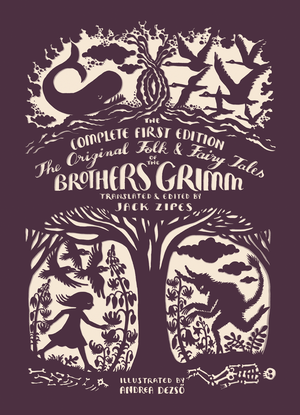The other night I presented a reading for the Playwrights
Unit, something I have been working on, on and off, all year. At the moment
it’s brief, the reading took a little over a half hour, a collection of folk
tales adapted for the present time. Not like, say, Thurber’s Fables For Our Time, but actual Grimm’s
fairy tales, re-imagined for the present.
Not the most original concept, I’ll grant you. My own
discoveries, just fucking with these bizarre stories is what has kept me
interested. For Christmas I received a copy of the newly translated first
edition of Grimm’s tales … what most of us know as Grimm’s Fairy Tales are
actually an edition that the brothers – who were sociologists, not writers –
had published after forty years of cultural anthropology and editing. What you
might call bowdlerizing.
For example, in the later Rapunzel, she accidentally tells
the witch about the Prince’s visits. In the original version, the witch doesn’t
know what’s happening until Rapunzel becomes visibly pregnant.
Many of these original drafts make no sense, stuff just
happens. Transgressing children get their comeuppance, except when they don’t.
Justice is arbitrary. Kind of like life, I guess, but what is the point?
Having several talented actors read the six scenes I have
created (to date) was extremely valuable for two main reasons: I was heartened
to know how funny the funny parts are, and also how horrible the horrible parts
are.
One notable observation was how urban legends are our modern
folk tales. There’s really only one lesson: Fear. Fear everything. Fear travel,
fear strangers, fear your food, fear your government, fear Bill Cosby.
But folk tales have the same basic message. Reach above your
station, you will suffer. Disobey any small part of what your parents tell you,
you will get pregnant and die. Actions may arbitrarily be rewarded with
treasure of slow, painful, grotesque punishment. Stay home. Keep your head
down. Don’t make waves.
The play, such as it is, is currently a jumble. With more
stories, it will become more coherent. But even this brief, enjoyable read
inspired some challenging discussions. Folks were generally troubled with the
scene about rape, as well they should be. But they were debating what it meant,
and what is the truth, and while there were some who felt the mood went
far-afield from the general sense of silliness that was prevalent in other
stories, that just reassured me I was on the right track.
I do not know where that track will lead but I may follow it
where it takes me.</metaphor>
















